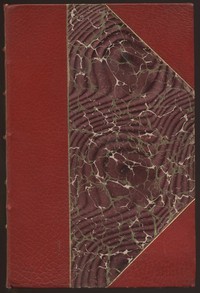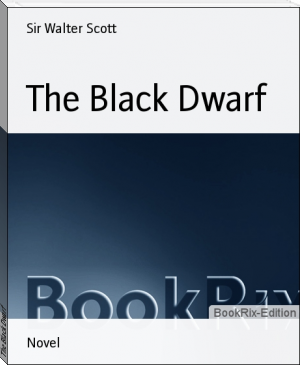Old Mortality, Volume 2. by Walter Scott (most important books to read txt) 📗

- Author: Walter Scott
Book online «Old Mortality, Volume 2. by Walter Scott (most important books to read txt) 📗». Author Walter Scott
"Ay, dispatch his sentence, and have done with him; we have plenty of drudgery behind."
Strong waters and essences were busily employed to recall the senses of the unfortunate captive; and, when his first faint gasps intimated a return of sensation, the Duke pronounced sentence of death upon him, as a traitor taken in the act of open rebellion, and adjudged him to be carried from the bar to the common place of execution, and there hanged by the neck; his head and hands to be stricken off after death, and disposed of according to the pleasure of the Council, [Note: The pleasure of the Council respecting the relics of their victims was often as savage as the rest of their conduct. The heads of the preachers were frequently exposed on pikes between their two hands, the palms displayed as in the attitude of prayer. When the celebrated Richard Cameron's head was exposed in this manner, a spectator bore testimony to it as that of one who lived praying and preaching, and died praying and fighting.] and all and sundry his movable goods and gear escheat and inbrought to his Majesty's use.
"Doomster," he continued, "repeat the sentence to the prisoner."
The office of Doomster was in those days, and till a much later period, held by the executioner in commendam, with his ordinary functions. [Note: See a note on the subject of this office in the Heart of Mid-Lothian.] The duty consisted in reciting to the unhappy criminal the sentence of the law as pronounced by the judge, which acquired an additional and horrid emphasis from the recollection, that the hateful personage by whom it was uttered was to be the agent of the cruelties he denounced. Macbriar had scarce understood the purport of the words as first pronounced by the Lord President of the Council; but he was sufficiently recovered to listen and to reply to the sentence when uttered by the harsh and odious voice of the ruffian who was to execute it, and at the last awful words, "And this I pronounce for doom," he answered boldly—" My Lords, I thank you for the only favour I looked for, or would accept at your hands, namely, that you have sent the crushed and maimed carcass, which has this day sustained your cruelty, to this hasty end. It were indeed little to me whether I perish on the gallows or in the prison-house; but if death, following close on what I have this day suffered, had found me in my cell of darkness and bondage, many might have lost the sight how a Christian man can suffer in the good cause. For the rest, I forgive you, my Lords, for what you have appointed and I have sustained—And why should I not?—Ye send me to a happy exchange—to the company of angels and the spirits of the just, for that of frail dust and ashes—Ye send me from darkness into day—from mortality to immortality—and, in a word, from earth to heaven!—If the thanks, therefore, and pardon of a dying man can do you good, take them at my hand, and may your last moments be as happy as mine!"
As he spoke thus, with a countenance radiant with joy and triumph, he was withdrawn by those who had brought him into the apartment, and executed within half an hour, dying with the same enthusiastic firmness which his whole life had evinced.
The Council broke up, and Morton found himself again in the carriage with General Grahame.
"Marvellous firmness and gallantry!" said Morton, as he reflected upon Macbriar's conduct; "what a pity it is that with such self-devotion and heroism should have been mingled the fiercer features of his sect!"
"You mean," said Claverhouse, "his resolution to condemn you to death?— To that he would have reconciled himself by a single text; for example, 'And Phinehas arose and executed judgment,' or something to the same purpose.—But wot ye where you are now bound, Mr Morton?"
"We are on the road to Leith, I observe," answered Morton. "Can I not be permitted to see my friends ere I leave my native land?"
"Your uncle," replied Grahame, "has been spoken to, and declines visiting you. The good gentleman is terrified, and not without some reason, that the crime of your treason may extend itself over his lands and tenements—he sends you, however, his blessing, and a small sum of money. Lord Evandale continues extremely indisposed. Major Bellenden is at Tillietudlem putting matters in order. The scoundrels have made great havoc there with Lady Margaret's muniments of antiquity, and have desecrated and destroyed what the good lady called the Throne of his most Sacred Majesty. Is there any one else whom you would wish to see?"
Morton sighed deeply as he answered, "No—it would avail nothing.—But my preparations,—small as they are, some must be necessary."
"They are all ready for you," said the General. "Lord Evandale has anticipated all you wish. Here is a packet from him with letters of recommendation for the court of the Stadtholder Prince of Orange, to which I have added one or two. I made my first campaigns under him, and first saw fire at the battle of Seneff. [Note: August 1674. Claverhouse greatly distinguished himself in this action, and was made Captain.] There are also bills of exchange for your immediate wants, and more will be sent when you require it."
Morton heard all this and received the parcel with an astounded and confused look, so sudden was the execution of the sentence of banishment.
"And my servant?" he said.
"He shall be taken care of, and replaced, if it be practicable, in the service of Lady Margaret Bellenden; I think he will hardly neglect the parade of the feudal retainers, or go a-whigging a second time.—But here we are upon the quay, and the boat waits you."
It was even as Claverhouse said. A boat waited for Captain Morton, with the trunks and baggage belonging to his rank. Claverhouse shook him by the hand, and wished him good fortune, and a happy return to Scotland in quieter times.
"I shall never forget," he said, "the gallantry of your behaviour to my friend Evandale, in circumstances when many men would have sought to rid him out of their way."
Another friendly pressure, and they parted. As Morton descended the pier to get into the boat, a hand placed in his a letter folded up in very small space. He looked round. The person who gave it seemed much muffled up; he pressed his finger upon his lip, and then disappeared among the crowd. The incident awakened Morton's curiosity; and when he found himself on board of a vessel bound for Rotterdam, and saw all his companions of the voyage busy making their own arrangements, he took an opportunity to open the billet thus mysteriously thrust upon him. It ran thus:—"Thy courage on the fatal day when Israel fled before his enemies, hath, in some measure, atoned for thy unhappy owning of the Erastian interest. These are not days for Ephraim to strive with Israel. —I know thy heart is with the daughter of the stranger. But turn from that folly; for in exile, and in flight, and even in death itself, shall my hand be heavy against that bloody and malignant house, and Providence hath given me the means of meting unto them with their own measure of ruin and confiscation. The resistance of their stronghold was the main cause of our being scattered at Bothwell Bridge, and I have bound it upon my soul to visit it upon them. Wherefore, think of her no more, but join with our brethren in banishment, whose hearts are still towards this miserable land to save and to relieve her. There is an honest remnant in Holland whose eyes are looking out for deliverance. Join thyself unto them like the true son of the stout and worthy Silas Morton, and thou wilt have good acceptance among them for his sake and for thine own working. Shouldst thou be found worthy again to labour in the vineyard, thou wilt at all times hear of my in-comings and out-goings, by enquiring after Quintin Mackell of Irongray, at the house of that singular Christian woman, Bessie Maclure, near to the place called the Howff, where Niel Blane entertaineth guests. So much from him who hopes to hear again from thee in brotherhood, resisting unto blood, and striving against sin. Meanwhile, possess thyself in patience. Keep thy sword girded, and thy lamp burning, as one that wakes in the night; for He who shall judge the Mount of Esau, and shall make false professors as straw, and malignants as stubble, will come in the fourth watch with garments dyed in blood, and the house of Jacob shall be for spoil, and the house of Joseph for fire. I am he that hath written it, whose hand hath been on the mighty in the waste field."
This extraordinary letter was subscribed J. B. of B.; but the signature of these initials was not necessary for pointing out to Morton that it could come from no other than Burley. It gave him new occasion to admire the indomitable spirit of this man, who, with art equal to his courage and obstinacy, was even now endeavouring to re-establish the web of





Comments (0)